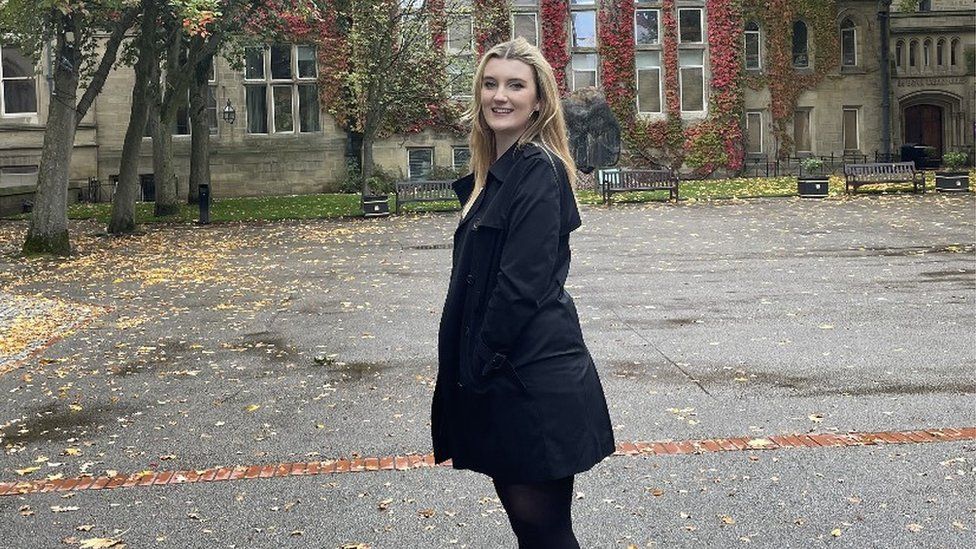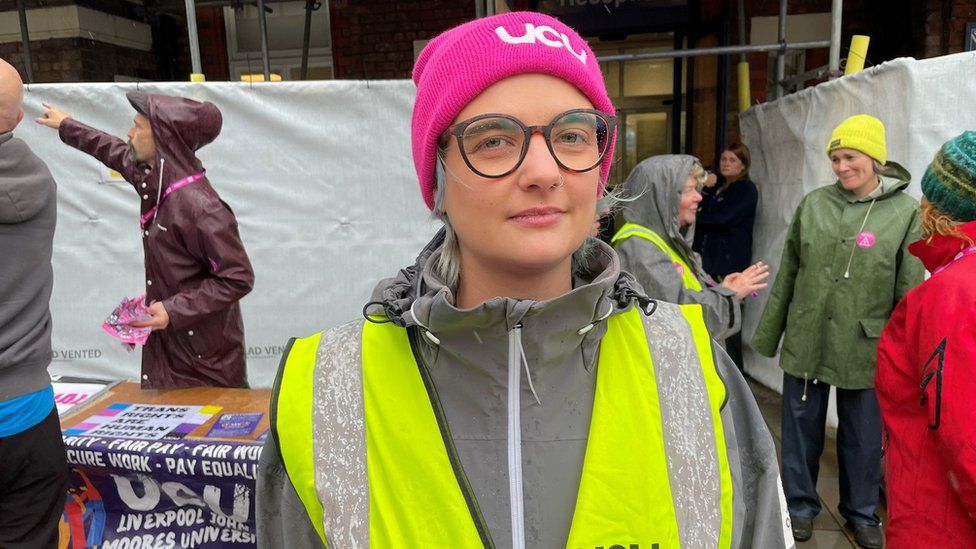Thousands of students face disruption as staff at more than 50 universities join picket lines across the UK.
It is part of a long-running dispute by members of the University and College Union (UCU) over pay and conditions.
The action will be smaller than planned as dozens of branches called off action following constructive talks with their universities.
The Universities and Colleges Employers Association (UCEA) says this year's pay deal is the highest offer in 20 years.
But the union is calling for an above-inflation pay rise and an end to insecure contracts.
UCU members at 42 universities are striking for five days, while staff will strike for one day at a further 10 institutions.
The union says more than 20,000 staff will be taking part in the strikes which will coincide with Freshers' Week for many first-year students. It says the action is now targeted "at the very worst employers".
The strikes this week were originally due to take place at more than 140 universities, according to the UCU.
However, many UCU branches withdrew after universities agreed with staff to give back pay deductions that were made during a marking boycott over the summer.
The marking boycott, which began in April and meant some students graduated without their final mark, has now ended.
The UCEA has urged staff who were involved to "prioritise marking for those remaining students who have still not received the necessary results to graduate in 2023-24".
It said most universities hope to have all students' work graded by early October at the latest.
Sadie Roberts, 19, was impacted by the strikes throughout her first year of English and language at the University of Sheffield.
Although she "wholeheartedly" supports the strikes and thinks the treatment of her lecturers is "ridiculous", she says students are the ones suffering.
"My lectures wouldn't happen, or you'd have online ones, and when you're paying that amount of money, it's just ridiculous."

Ms Roberts says the marking boycott almost cost her the ability to transfer to the University of Newcastle to be nearer her family, as she could not show all of her first-year results. She still has not received the results for one her modules.
"I'd left Sheffield formally and the marking boycott left me without anywhere to go and no accommodation," she says.
"After months of not knowing if I was going to get in, they eventually came back and said we can accept you, but there was a real worry."
Bee Hughes, 34, a senior lecturer at Liverpool John Moores University and UCU branch chair, will be on the picket lines on Monday asking for better pay and an end to casual contracts, which they were on for eight years.
"Between contracts you might not have access to the library so you don't even have access to academic texts that you need to do the work and you can't plan," they said.
"Usually you don't even know if you're going to have a contract until the last minute. You can't plan your future."

Dr Hughes is now able to save for the first time since gaining a permanent position.
"Starting a family hasn't even been a consideration. There has been lots of points over the eight years where I was on the brink of giving up," they said.
"We've basically been asked to do more and more for less and less money and it's really unsustainable."
The UCEA, which acts for the employers in the dispute, says its improved pay deal for 2023-24, worth between 5% and 8%, was the highest offer of its kind in nearly 20 years.
UCEA chief executive Raj Jethwa said universities were under "very difficult financial circumstances so this was at the very edge of what the sector could afford".
He said they wanted to work with the unions to make sure the other issues that were vital to employers and staff were dealt with.
Mr Jethwa said it was "positive news" that some strikes had been called off but any student still affected was "one too many".
He said he hoped an independent review of the sector's finances by both employers and the unions can help to reduce any further industrial action.
However, UCU says this year's pay offer was a pay cut in real terms.
Since February 2018, there has been industrial action over two disputes - pensions as well as pay and working conditions - but the pensions dispute was resolved earlier this year.
The union has now begun reballoting members to renew its mandate to strike over pay and working conditions, which is due to expire at the beginning of October. If accepted, strike action could continue into 2024.
UCU general secretary Jo Grady said "renewing our mandate and keeping the pressure on is the way we will win this dispute".
She said the strike action was "a reminder to all employers that if you behave egregiously, you will face further disruption".
© OfficialAffairs